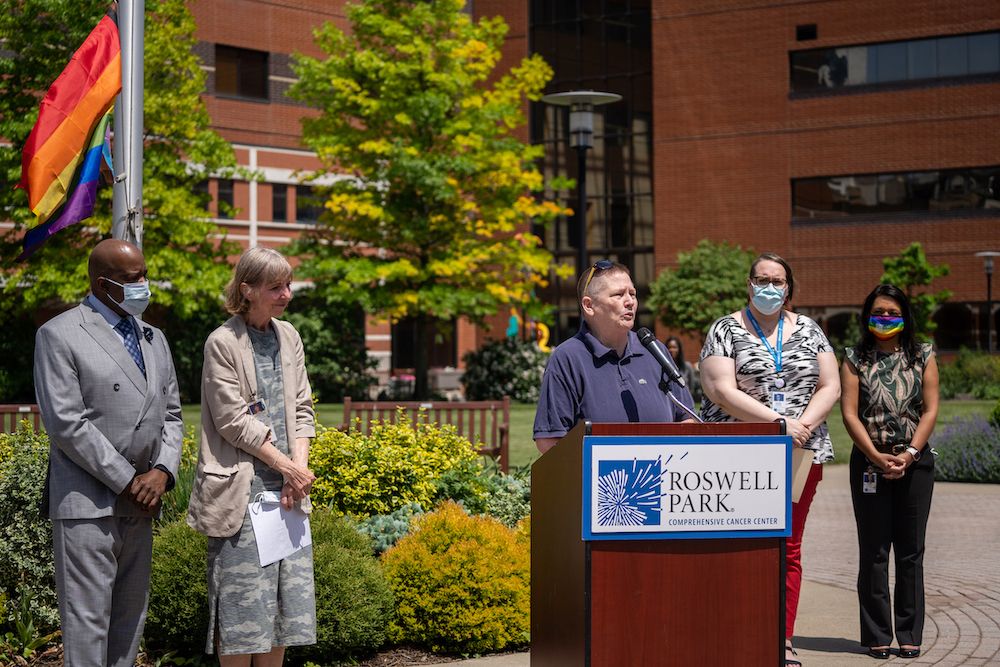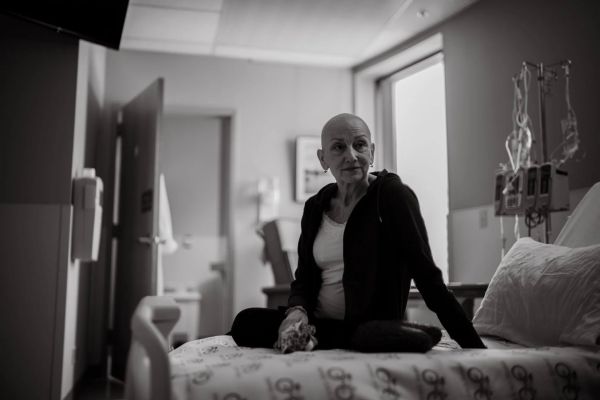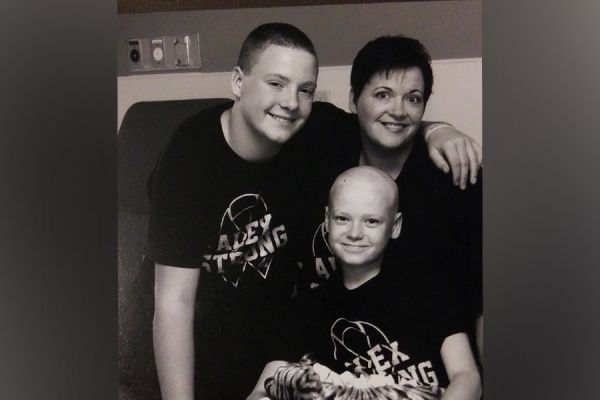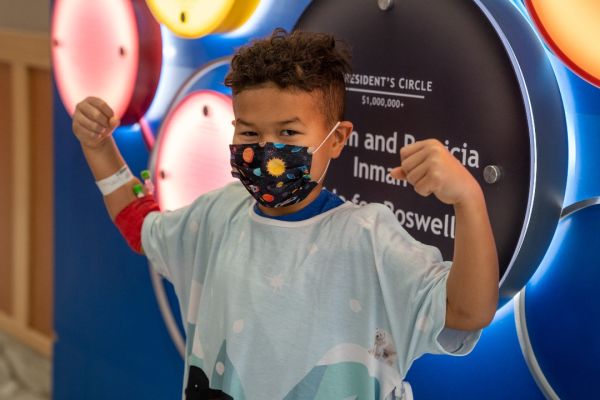When someone tells you who they are, believe them.
For Susan Frawley, it was a receptionist’s disbelief when she introduced herself that eventually led her to Roswell Park Comprehensive Cancer Center.
For seven years, she had been seeing a urologist for a condition called angiolipoma in which typically benign tumors grow on the outside of the kidney. It was a small growth that required regular visits to her doctor for scans to make sure the growth hadn’t become larger. During one visit to this office, she introduced herself to a new receptionist.
“The first thing that happens is I’m misgendered at the desk,” Susan says. “I go, ‘Hello, I’m Susan Frawley,’ and the woman takes her index finger and does this up and down motion, going, ‘You’re not Susan.’” The receptionist did this a second time. “I asked her, ‘Do I need to open up my shirt?,” she recalls. A supervisor overheard the discussion and came over, and Susan explained the problem: She was having trouble signing in for her appointment because the new receptionist didn’t believe that she, a self-described “butch-looking woman” was in fact a woman. The receptionist never apologized or acknowledged her mistake.
In the office, Susan recounted to her attending physician what had just happened. As they were taking her vital signs, her blood pressure was elevated from the stress. To make matters worse, her angiolipoma had grown considerably, from 1 centimeter (cm) to 5 cm. “It had never changed,” Susan says. “I’m freaking out. She was trying to get ahold of my doctor. They wanted to send me to someone else. I had an MRI and a CAT scan, which showed the growth. Now I don’t have as much confidence in my doctor because they never said it was growing. I’m thinking, ok, if this has to come out, I don’t want him cutting me.”
A friend had previously been treated for kidney cancer at Roswell Park, under the care of urologist Eric Kauffman, MD. She encouraged Susan to give him a call, despite her condition not being cancerous, because of how well he had treated her. “When they say on the commercials, ‘Spend just one day with us,’ it really makes a difference,” Susan says.
A little respect goes a long way
From the moment Susan walked in, accompanied by an advocate, she was greeted by her first name. “Right from the moment you walk in, you’re a little panicky, but from the security person to the receptionist to all the onboarding, every person treated me with dignity,” she says. “It was always my first name. In my head I knew, someone trained these people. They’re using proper protocols. At some point someone asked me if I had a preferred pronoun and do I want them to use it. I was applauding this. I was about to cry – that’s fantastic! It should be like this everywhere, but it isn’t.”
Dr. Kauffman reviewed all of Susan’s prior medical records but conducted his own examinations as well. “He looked at everything. He consulted with my general practitioner. I have never been so thoroughly checked and cared for and he explained everything to me.” She’s currently on a regular course of exams with Dr. Kauffman for her angiolipoma – if it grows too large, she may need surgery to have it removed as it could impair her kidney function.
Why Roswell Park for a Second Opinion?
There are many reasons to seek a second opinion when it comes to your health. Our doctors are Roswell Park are here to help.
Learn MoreThe importance of inclusive care
Susan wants to share her experiences with as many people as she can, because in the LGBTQIA2+ community, people often put off taking care of their health for fear they won’t be treated with the dignity she’s been shown at Roswell Park.
“Other friends who have had breast cancer, leukemia, they waited so long to get treatment because they were afraid of going to the doctor or the hospital because they were afraid of how they’d be treated,” she says. “Many of my male friends won’t go for prostate cancer checks, even though we know early detection can save lives. If I can use my experience, even if it’s not the same as friends who had to go through surgery or chemotherapy, it will be good just to say this is how I was treated, I know you will be treated well too. In our community, we listen to each other. If someone has a bad experience, it can build up to people not taking care of their health. It happens more than anyone would ever know, and it really has a negative impact. It’s time we speak up for the places that are doing it right.”
She also advocates for transgender people to remember they may need to be screened for cancers that do not affirm their gender identity. “Those can be big triggers for a trans individual, if you still need to see a gynecologist but you’re a male, or if you need a prostate exam but you identify as female.” Susan understands, too, that some medical professionals might be nervous about making a mistake when speaking to someone in the LGBTQIA2+ community, but knows a little training and practice can help ease those concerns.
“If you don’t, you might do something that makes someone not want to come back, and they might not get the care they need and they might die. That’s not acceptable,” she says. “The more people who are aware and try to make things smoother for those navigating these medical roadways, the better.”
Susan applauds Roswell Park for taking the time and making the efforts to train people to treat patients with dignity and respect and for continuing to work toward a more compassionate world. “What was most important is the work Roswell Park has done. They’re still doing more and reaching out to see how they can improve,” she says. “That says a lot about the institution.”
Editor’s Note: Cancer patient outcomes and experiences may vary, even for those with the same type of cancer. An individual patient’s story should not be used as a prediction of how another patient will respond to treatment. Roswell Park is transparent about the survival rates of our patients as compared to national standards, and provides this information, when available, within the cancer type sections of this website.



